Infantile Spasms: A Unique Early-life Form of Epilepsy
Infantile Spasms (IS) is a unique early-life epilepsy with heterogenous etiologies, few treatment options, and significant developmental consequences. 
- Children with infantile spasms are at high risk of intellectual disabilities later in life.
- Even without an underlying brain disorder or injury, children with IS are at risk of developmental delays and intellectual disabilities.
- Even if the infantile spasms stop, many children later develop other kinds of epilepsy, including Lennox-Gastaut syndrome and focal or multifocal epilepsy. These types of epilepsy do not respond to medicines well.
Clinical trials and multi-center collaborative prospective cohorts have lead to new insights into predictors of treatment response and refinement of IS treatment. Novel research tools and technological advances have uncovered potential neurobiological mechanisms underlying IS.
Boston Children’s Hospital through the IS Program and other research groups have been at the forefront of the outstanding clinical care and research productivity related to IS. This October 11th various groups from Boston Children’s Hospital and greater Boston institutions will come together for a symposium to explore the prospects of coordinating our collective efforts more closely to improve outcomes of babies with infantile spasms.
The goals are to:
- Disseminate recent clinical and translational IS-related research results from BCH faculty and from our colleagues locally to pediatric neurologists and basic science researchers at BCH and surrounding institutions,
- Foster a connected and cohesive IS-related research network within BCH, and
- Develop new collaborative clinical and translational IS-related research projects with BCH and the surrounding institutions.
The event will be sponsored by the Intellectual and Developmental Disabilities Center and the Rosamund Stone Zander Translational Neuroscience Center and led by Dept of Neurology’s Dr. Chris Yuskaitis (IDDRC member) and Dr. Chellamani Harini co-leaders of the Infantile Spasms Program at BCH.
For more information here are a few recent publications:
Infantile spasms: Assessing the diagnostic yield of an institutional guideline and the impact of etiology on long-term treatment response. Chourasia N, Yuskaitis CJ, Libenson MH, Bergin AM, Liu S, Zhang B, Poduri A, Harini C. Epilepsia. 2022 Feb 25. Online ahead of print. PMID: 35211955
Confirmation of infantile spasms resolution by prolonged outpatient EEGs. Yuskaitis CJ, Mysak K, Godlewski B, Zhang B, Harini C.Epilepsia Open. 2021 Dec;6(4):714-719. PMID: 34524734
Cost-effectiveness of adrenocorticotropic hormone versus oral steroids for infantile spasms. Sánchez Fernández I, Amengual-Gual M, Gaínza-Lein M, Barcia Aguilar C, Bergin AM, Yuskaitis CJ, Harini C.Epilepsia. 2021 Feb;62(2):347-357. PMID: 33417252
Crisis Standard of Care: Management of Infantile Spasms during COVID-19. Grinspan ZM, Mytinger JR, Baumer FM, Ciliberto MA, Cohen BH, Dlugos DJ, Harini C, Hussain SA, Joshi SM, Keator CG, Knupp KG, McGoldrick PE, Nickels KC, Park JT, Pasupuleti A, Patel AD, Pomeroy SL, Shahid AM, Shellhaas RA, Shrey DW, Singh RK, Wolf SM, Yozawitz EG, Yuskaitis CJ, Waugh JL, Pearl PL; Child Neurology Society (Practice Committee and Executive Board) and the Pediatric Epilepsy Research Consortium (Infantile Spasms Special Interest Group and Steering Committee).Ann Neurol. 2020 Aug;88(2):215-217. PMID: 32445204



